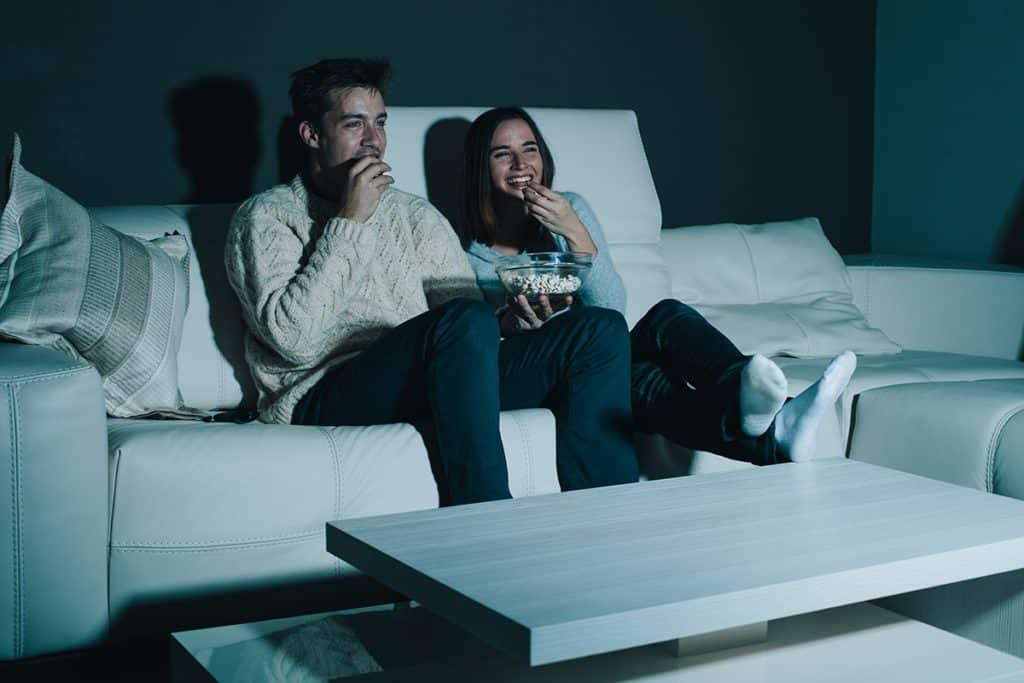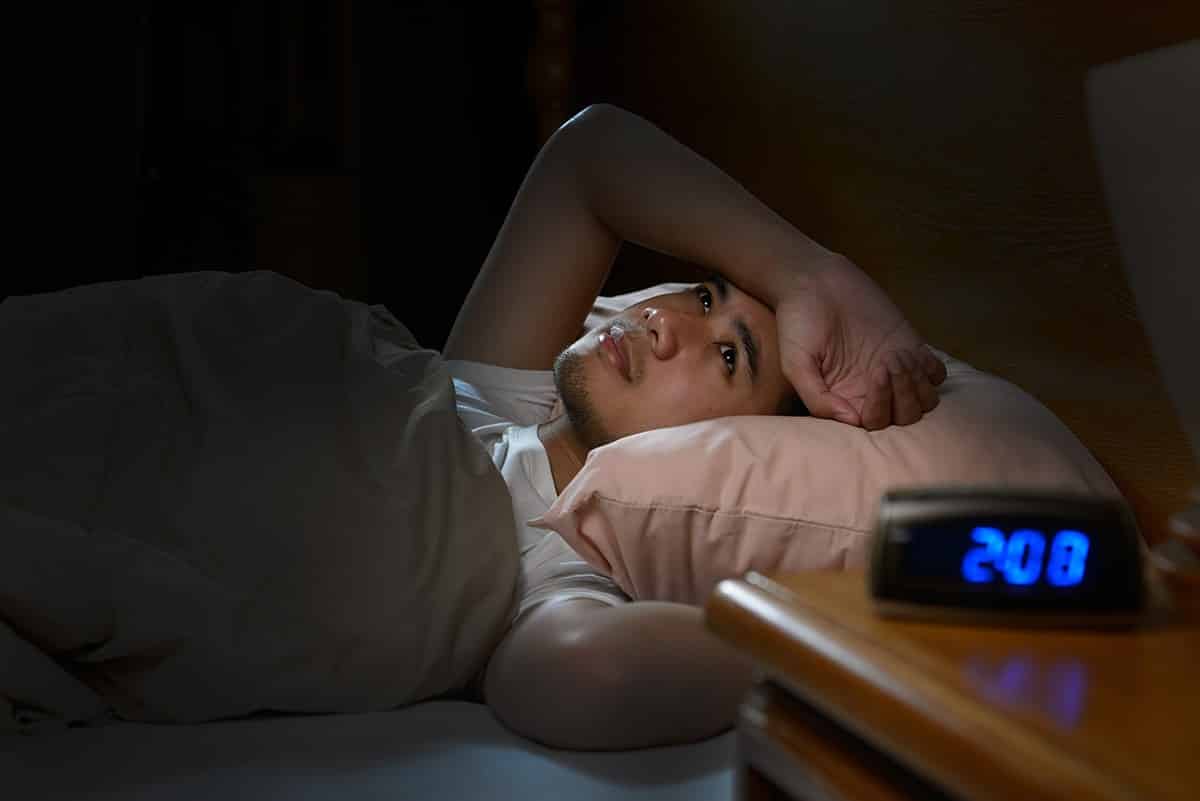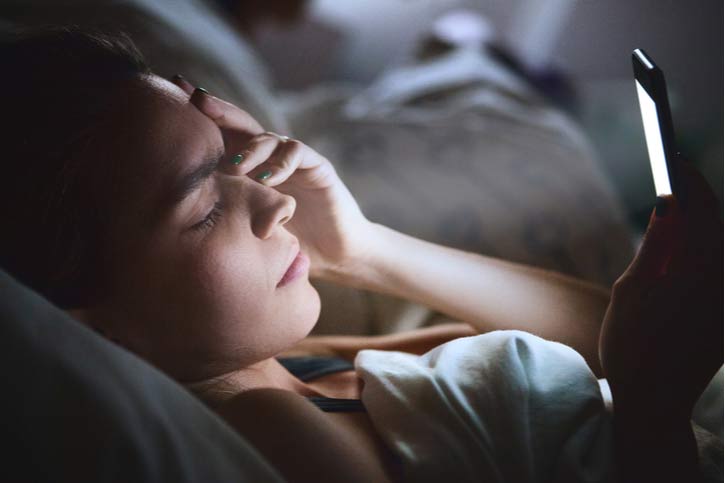In this fast-paced world, you may find solace in watching your favorite TV shows. With the convenience of streaming services, you can immerse yourself in captivating storylines for hours. However, this seemingly harmless activity may take a toll on your sleep. This article will explore how binge-watching TV affects your sleep and provide tips for better sleep habits.
What is Binge Watching?
Binge-watching refers to the act of watching multiple episodes or an entire season of a TV show in one sitting. It often involves spending extended periods glued to the screen, disregarding the passage of time and other activities. This pattern and impact also apply to binge-watching any screen, not just television.

How Watching TV Before Bed Affects Sleep
Staring at a screen close to bedtime can seriously affect your sleep quality. Read on to find out why.
The Impact of Blue Light
One of the primary ways binge-watching TV affects your sleep is through exposure to blue light. Blue light is a short wavelength light emitted by electronic devices like TVs, smartphones, tablets, and computers. You also receive blue light from the sun, which makes sense because blue light keeps you alert. Artificial blue light stimulates the brain and tricks it into thinking it’s daytime, making it difficult to wind down and relax before bedtime.
Blue light also suppresses the production of melatonin, a natural hormone your body makes in response to darkness. Melatonin helps you fall and stay asleep. With decreased melatonin production, you may stay awake longer and wake up more during the night. If you want to dive deeper into this topic, we have an entire article about how blue light affects sleep.
How It Affects the Sleep Cycle
Your sleep cycle is part of your circadian rhythm, the roughly 24-hour cycle of sleep and wakefulness you move through each day. The sleep cycle has several different parts that contribute to your overall health. Watching TV or anything on a screen shortly before bedtime can mess up your sleep cycle, and it’s not just due to blue light. The content of what you’re watching can also play a role. Exciting or suspenseful shows can increase your heart rate and stimulate your brain, making it difficult to relax and unwind before sleep.
In fact, a study published in the Journal of Developmental & Behavioral Pediatrics found that screen use accounted for 30% of all episodes of inadequate sleep in adolescents.
Disrupts Melatonin Production
Melatonin is a hormone that helps regulate our sleep-wake cycle. It is produced by the pineal gland in our brain and is responsible for making us sleepy and promoting quality sleep. You produce melatonin when it’s dark, so if your eyes are taking in blue light and your brain thinks it’s daytime, it won’t produce melatonin.
Increases Your Sleep Debt

Sleep debt is the cumulative loss of sleep when we consistently do not get enough sleep. And while it would be great if you could catch up on all that sleep you lost while binge watching Mad Men, it doesn’t work that way. If you have an occasional late night, you can generally “catch up” on sleep over the next few nights. However, if it’s a chronic pattern, your health will suffer. Accumulated sleep debt can have various negative effects on our physical and mental health, including decreased cognitive function, impaired memory, and increased risk of chronic conditions such as obesity, diabetes, and cardiovascular disease.
Tips for Better Sleep Habits
You probably know by now that what we care about most is getting good quality sleep. Here are a few tips to help you do just that.
When To Turn Off Screens Before Bed
Experts like Chester Wu, M.D., recommend shutting off screens at least an hour before bed. This allows your brain to adjust to dimmer lighting conditions and facilitates the release of melatonin, signaling your body that it’s time to sleep.
Limit Screen Time/ Set Daily Limits
Setting daily limits on your screen time can help you avoid excessive binge-watching and its detrimental effects on your sleep. How much is enough?
Experts have varying opinions of anywhere from two to eight hours outside of work. Dr. Dimitri Christakis, a pediatrician, epidemiologist, and director of the Center for Child Health, Behavior, and Development at Seattle Children’s Research Institute, told Time magazine that it’s also important to focus on how much time you’re not using screens during the day. He says adults should try to be screen-free for at least three or four hours during the day and really enjoy that time.

To help you with this, consider using apps or features on your devices to set time limits or receive reminders when you’ve reached your predetermined screen time. By consciously limiting your screen time, you can regain control over your sleep schedule and improve your overall well-being.
Establish a Regular Sleep Schedule
Maintaining a consistent sleep schedule is essential for your overall sleep quality. Set a fixed bedtime and wake-up time to regulate your body’s internal clock, even on weekends. This helps you sleep longer and get higher quality sleep.
Minimize Exposure to Blue Light Before Bed
You knew this was coming. Blue light makes your brain think it’s daytime, which is not what you want. Consider using blue light filters or glasses that block blue light emissions. Some electronic devices also have built-in night mode settings, which reduce the amount of blue light emitted.
Additionally, you can create a sleep-friendly environment by dimming the lights in your bedroom and avoiding bright screens. By implementing these tips, you can minimize the negative impact of binge-watching TV on your sleep and improve your overall sleep quality.
The Takeaway
While indulging in a TV show marathon can be a delicious way to unwind, it’s important to be mindful of its impact on your sleep. By understanding the consequences of binge-watching and implementing healthier sleep habits, you can optimize your sleep quality and wake up refreshed and energized.
FAQs
Can I sleep with my TV on?
Yes, but it’s not ideal. Sleeping with the TV on is generally not recommended and can have negative health effects. Even if you fall asleep with the TV on, the sound and light emitted by the screen can disturb your sleep cycles throughout the night. This can result in fragmented and less restful sleep, leaving you feeling groggy and exhausted the next day.
Instead of relying on the TV for comfort during sleep, consider creating a relaxing sleep playlist of soothing sounds or sleep podcasts. The apps Calm and Headspace both offer helpful sleep-promoting playlists. And make sure that your bedroom is dark, quiet and cool, which is the optimal environment for rest.
How many hours should you stop watching TV before bed?
It is best to stop watching TV at least one to two hours before bed. This time frame allows your body to gradually wind down and adjust to a state of relaxation. Your brain can then produce melatonin and prepare for sleep.
If you find cutting out TV entirely before bed challenging, try gradually reducing your screen time. Start by setting a goal of avoiding TV for 30 minutes before bed and slowly increase that timeframe until you reach the recommended one to two hours.
Should you watch TV when you can’t sleep?
No. Watching TV when you can’t sleep can make the problem worse. The stimulating content and blue light emitted by the screen can further disrupt your sleep patterns and make it even harder to fall asleep.
Instead of resorting to TV, try calming activities such as reading a book, practicing deep breathing exercises or listening to soothing music. These activities can help relax your mind and prepare your body for sleep.
